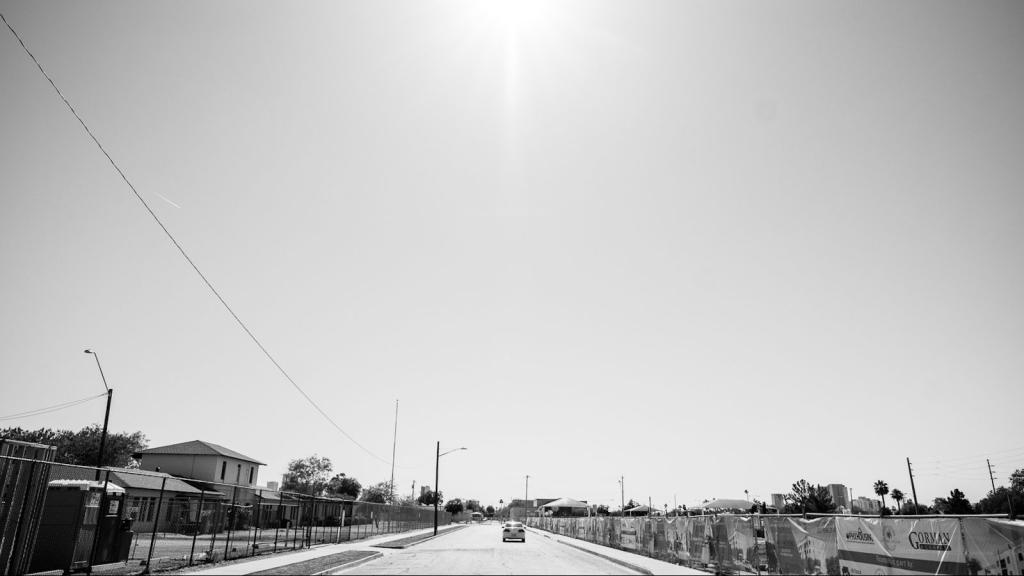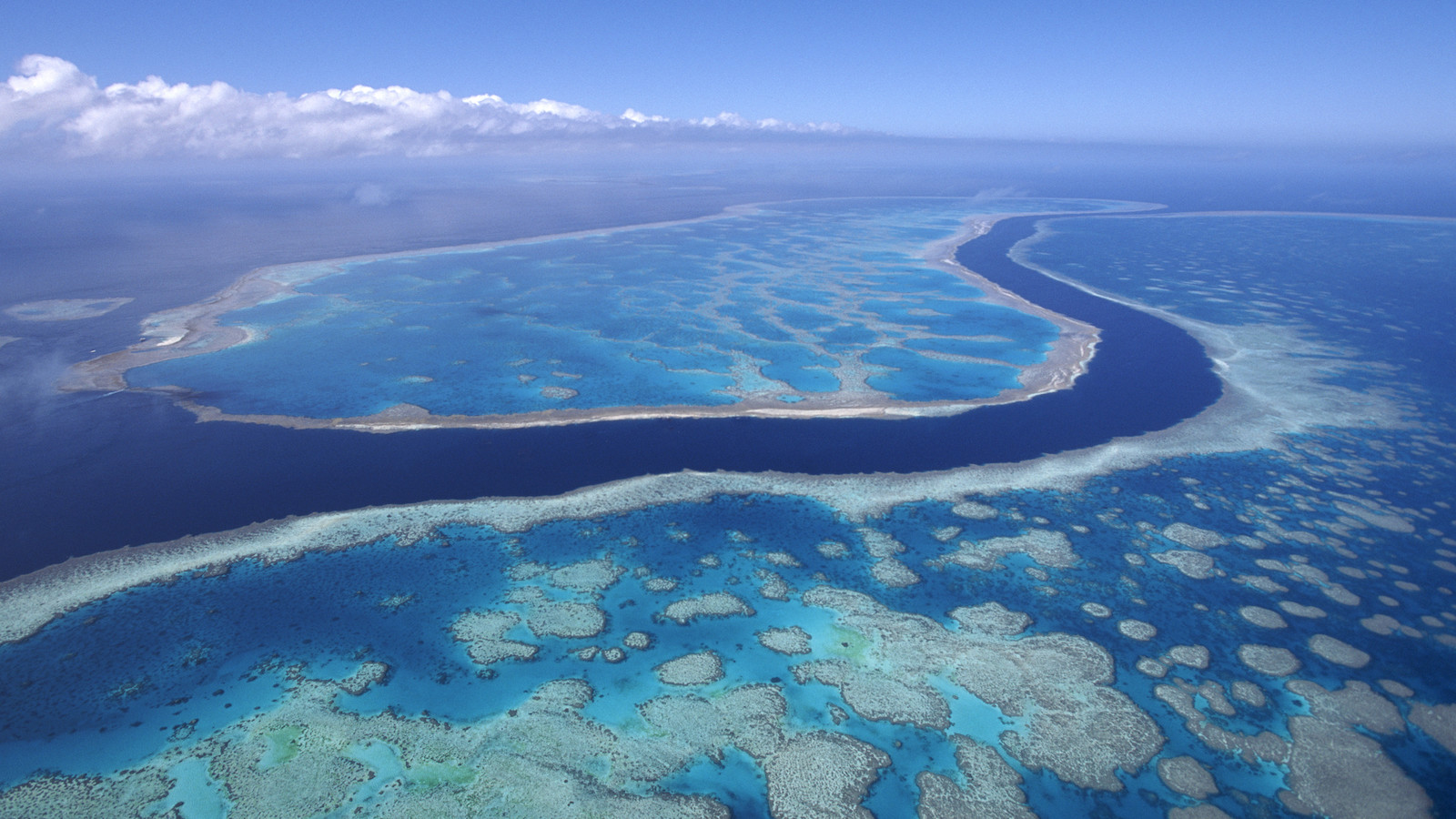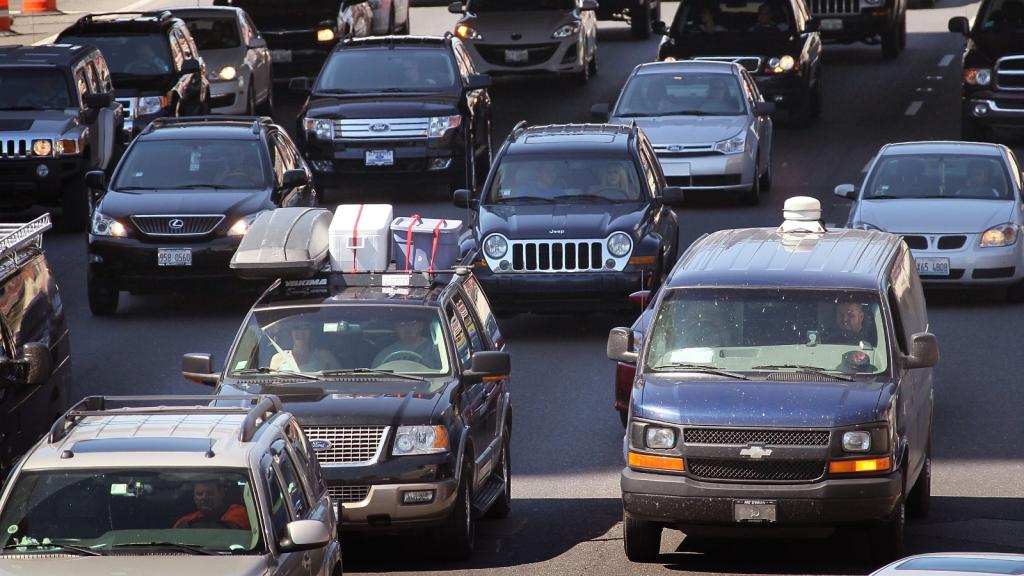This story was originally published by the Guardian and is reproduced here as part of the Climate Desk collaboration.
Temperatures over the Great Barrier Reef in December were the highest on record with “alarming” levels of heat that have put the ocean jewel on the verge of another mass bleaching of corals, according to analysis from U.S. government scientists seen by Guardian Australia.
On Friday, Australian prime minister Scott Morrison’s government announced $1 billion for reef conservation over the next nine years if it wins the next election – a pledge branded by some as a cynical attempt to stop the reef being placed on the world heritage “in danger” list at a meeting in July.
Conservationists and scientists mostly welcomed the pledge, but many said the government needed to greatly improve its greenhouse gas emissions targets and stop supporting fossil fuel projects.
In the three months leading up to December 14, an analysis from scientists at the National Oceanic and Atmospheric Administration, or NOAA, said heat stress over the corals reached a level “unprecedented in the satellite record” for that time of year.
According to the analysis, temperatures were so hot that between mid-November and mid-December, the minimum temperatures over more than 80 percent of the reef were higher for that period than previous maximums.
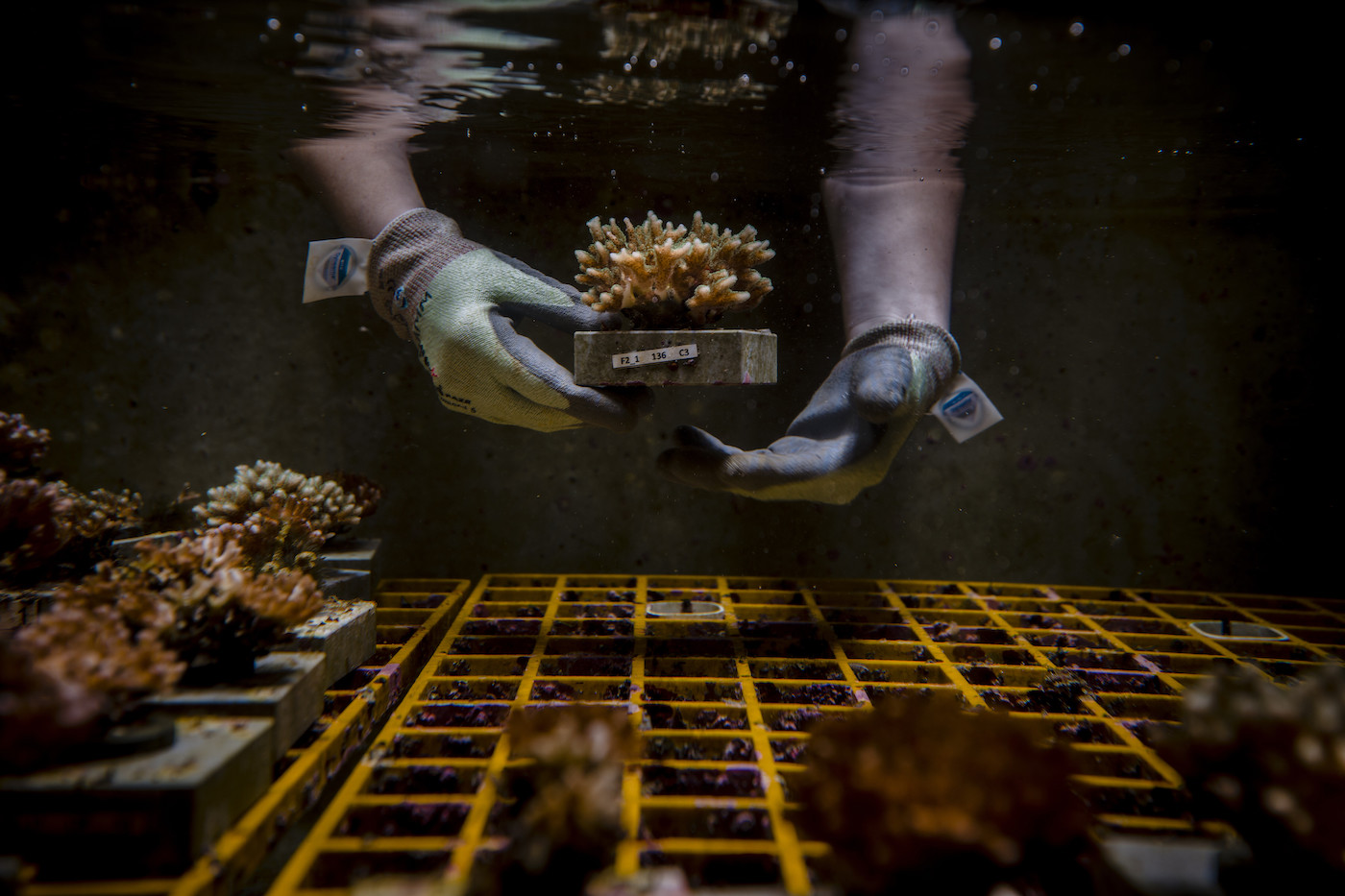
William Skirving, of NOAA’s Coral Reef Watch, said his team “were surprised, shocked, and concerned” when the analysis, covering each year from 1985, was completed.
“There’s never been heat stress like that in our records. It’s completely out of character and speaks to the fact that the minimum temperatures were higher than the previous maximums. This is almost certainly a climate change signal,” Skirving said.
“Being a scientist in this field in this day and age is sometimes a bit nightmarish. Sometimes I wish I knew a little bit less.”
As greenhouse gas emissions accumulate in the atmosphere, the world’s oceans are getting hotter, and scientists say coral bleaching will become more frequent in the short term, whatever happens to emissions.
The 1,400 mile reef has seen five mass bleaching events – in 1998, 2002, 2016, 2017, and 2020 – all caused by rising ocean temperatures driven by global heating.
According to the NOAA analysis, which has not been peer reviewed but has been accepted to a scientific journal, the reef headed into the summer with “more accumulated heat than ever before”.
Average water temperatures in mid-December were at least 0.9 degrees Fahrenheit hotter than the corresponding period for any previous summer when the reef bleached.
The peak period for heat stress tends to be in late February and March.
Corals get most of their food and color from the algae that live within them. But if temperatures get too high, the algae separates and leaves the animal bleached white.
Corals can recover from mild bleaching but are weaker, more susceptible to disease and reproduce less in the following years.
“The impact is considered minor at this point, however we are watching conditions closely, recognizing the heat accumulation in the system,” said Mark Read, the assistant director of reef protection at the Great Barrier Reef Marine Park Authority.
There were reports of heat-stressed corals and some bleaching from offshore reefs between Cooktown and Mackay and inshore reefs near Townsville.
“The risk of broad-scale coral bleaching in the Great Barrier Reef is reliant on weather conditions over the next couple of weeks,” he said, noting extended periods of cloud cover, rainfall, and wind could all help reduce temperatures.
Australian Bureau of Meteorology meteorologist Shane Kennedy said monsoonal conditions could deliver cloud and rain in the coming week, but this could clear south of Cairns in the coming days.
Associate professor Tracy Ainsworth, a coral biologist at the University of New South Wales, said cloud cover could reduce the extra stress on corals from sunlight.
“It’s sad we’re in a position where we’re hoping for conditions that minimize coral mortality.”
Professor Jodie Rummer, a Townsville-based marine biologist, said some corals were bleaching at Magnetic Island, near Townsville.
“I’m concerned for the reef and this funding pledge feels a bit like a last-ditch effort [to stop the reef being listed as in danger],” she said.
Last week, the Australian Prime Minister, Scott Morrison, was in Cairns to announce the funding which, if his government was re-elected, would target projects across water quality, pollution, illegal fishing, and outbreaks of coral-eating starfish.
Reef health monitoring, habitat restoration, and scientific research into making corals and habitats more resilient would also be funded.
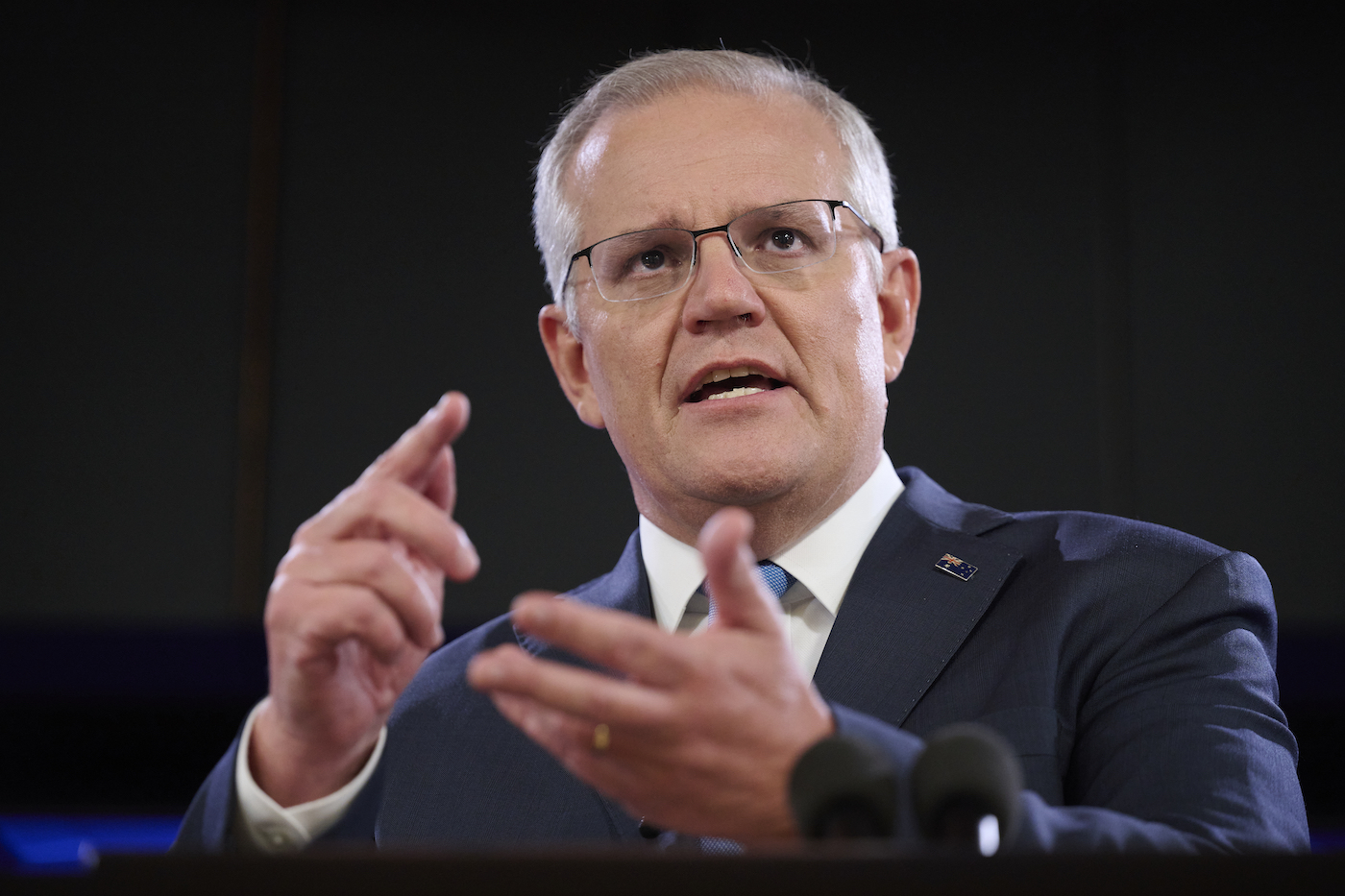
The world heritage committee is due to decide in July whether to place the reef on its “in danger” list.
United Nations Educational, Scientific, and Cultural Organization (UNESCO) science advisers recommended the listing last year, and the $1 billion pledge came just days before a February 1 deadline for the government to send a progress report to UNESCO.
Associate professor Mike Van Keulen, the chair of marine science at Murdoch University, described the coalition’s pledge as “a cynical token action.”
Conservation groups have long called for extra funding to improve water conditions over the reef, which experts say can improve the health of corals and give them a better chance of surviving as temperatures rise.
Richard Leck, the head of oceans at WWF-Australia, said the pledge was “positive news for our national icon” and would keep funding at broadly their current levels.
“Progress on reducing water pollution has fallen behind the government’s targets to protect the reef, so it’s vital that this investment is applied in a way that markedly improves water quality.”
But he said it “needs to be complemented by real action on climate to drive down emissions this decade”.
Anita Cosgrove, a Queensland campaigner with the Wilderness Society, said the package was “insufficient to overcome the breadth of challenges”.
The Australian Academy of Science president, John Shine, said global heating threatened the reef’s “extraordinary variety of habitats and species”.
The Australian Marine Conservation Society water quality expert, Jaimi Webster, said funding to address water pollution and illegal fishing was welcome, but insufficient.
Gavan McFadzean, of the Australian Conservation Foundation, said: “A government that is fair dinkum about protecting the Great Barrier Reef would urgently phase out coal, oil and gas – and would not continue to subsidize the growth of fossil fuel industries – to give the reef a chance to survive.”
The Queensland Conservation Council director, Dave Copeman, also said the government’s support for fossil fuel projects was putting the reef under threat.
The Australian Labor Party’s deputy leader, Richard Marles, questioned whether the Morrison government would follow through on its $1 billion pledge.
“This is a prime minister who throughout his time in office has completely failed to take any meaningful action on climate change,” he said, adding “you cannot take action on the reef without being serious on climate change, and Scott Morrison is not”.
The Australian Greens’ senator for Queensland, Larissa Waters, said: “A belated cash splash on the Great Barrier Reef is a joke from a government that has turbo-charged the climate crisis imperiling the reef by giving billions to fossil fuels and backing new coal and gas.”
Morrison’s pledge was also criticized by one of his own backbenchers. The Queensland Liberal National party senator Gerard Rennick told the ABC it was “unnecessary funding” that was only aimed at “appeasing the United Nations”.
